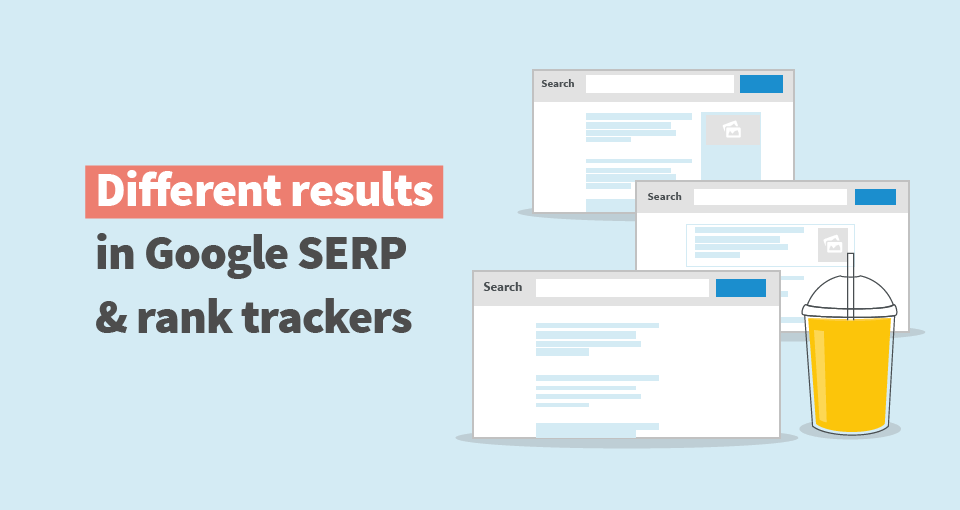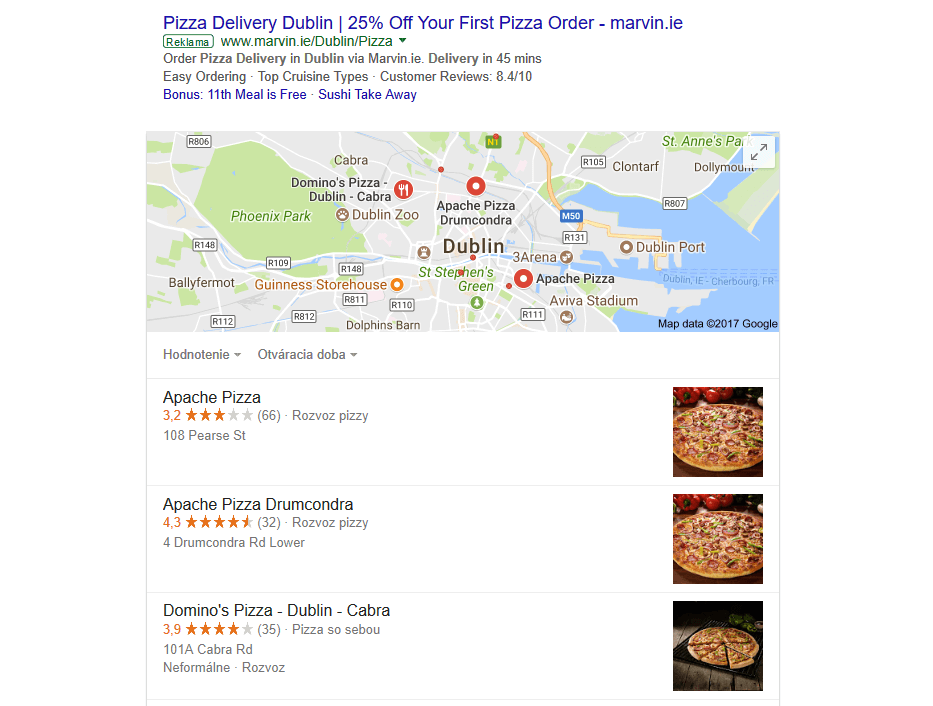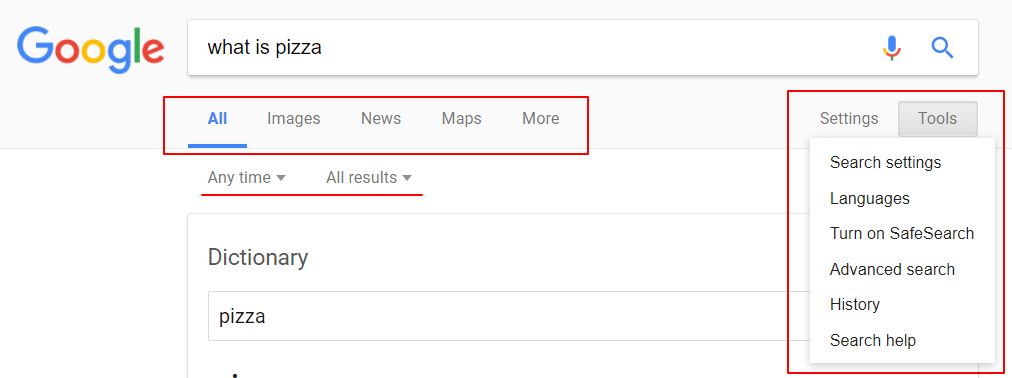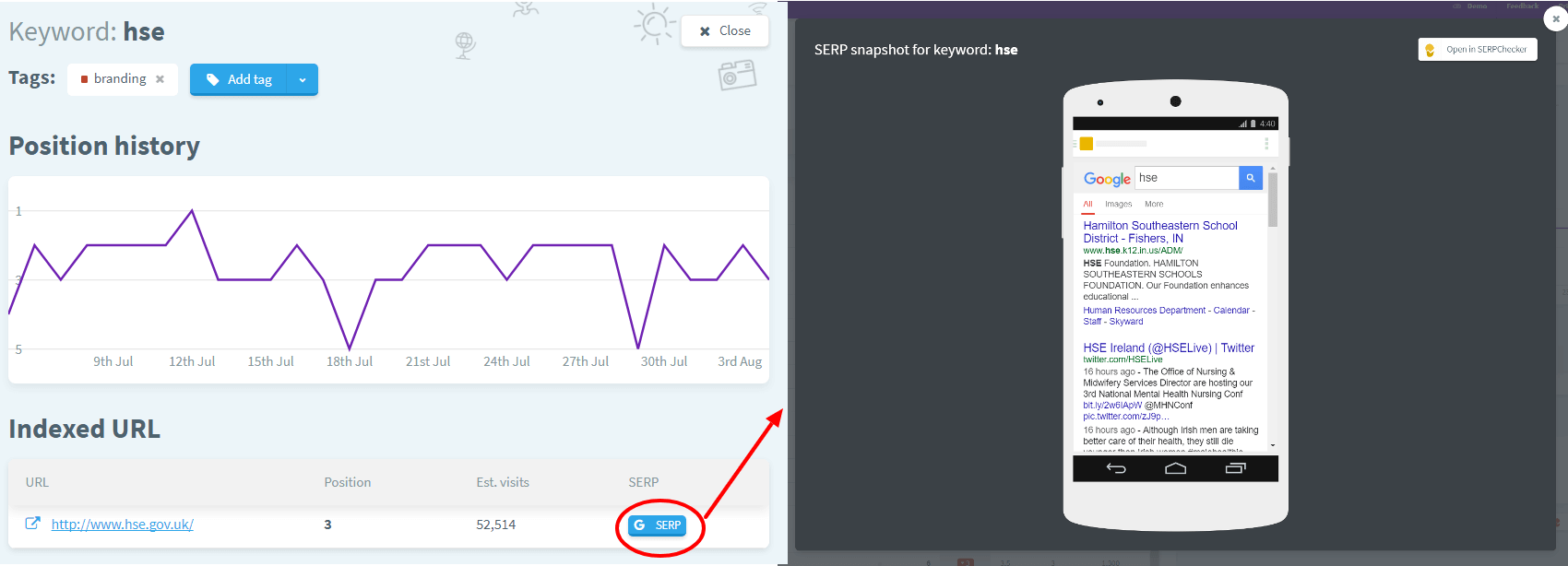Google SERP changes constantly. It means different people can see different search results for the same query. It’s a common thing in SEO. Especially, when it comes to keyword position tracking.
The question is: “How can my clients and I be sure the positions in a rank tracking tool are accurate?”
Rank trackers, such as our new SERPWatcher, track positions that are unique for many users. That’s why organic traffic and its progress is far more important than rankings themselves. And that’s what SERPWatcher is all about.
In this blog post, I’ll cover the top 7 reasons why Google SERP may vary dramatically when you compare it to rank trackers in general.
1. Personalized results
Google personalizes the search based on your history and behavior to give you results that will most likely fit you. The data includes:
- Search history based on previous Google searches.
- Visited websites history from the browser history.
- Whether you’re logged or not to Google account – Being logged in Google account lets Google learn what websites you spend time on and how you interact with them.
- Engagement – If you share something on social media, buy a product from a particular website, play a video on YouTube, or comment a blog post, Google will use this information to come up with a personalized SERP.
Possible solution: Stay logged out from Google account and use private (incognito) mode in your browser.
2. Location/IP address
Your current location leads to personalized search. No doubt about it. Have you already disabled the option to use the location by your browser? That’s good but it won’t solve the issue.
Google uses your IP address to identify your location. This is actually fantastic because you aren’t interested in New York pizza delivery while you’re starving in Dublin. Just enter search query “pizza delivery near me” to see how it works.
On the other hand, it won’t make you happy if you want to compare positions with the ones in rank trackers.
Possible solution: Use proxy or VPN for Google search.
3. Device used
Naturally, mobile SERP consists of mobile-friendly websites and AMP sites if applicable. What’s more, smartphones usage brings local SEO to a new level of importance.
Your mobile rankings will be in contrast to desktop rankings. In SERPWatcher, you can track both mobile and desktop positions.
Possible solution: Use always the same device both in Google search and a rank tracker.
4. Google data centers synchronization
Google has many data centers across the globe to deliver results quickly. Data among them are often synchronized with significant delays.
Google search engine fetches the data from the closest data center based on the location of which is the search query submitted. That means the results for same keywords will probably be different as the data may not be synchronized.
Possible solution: There isn’t a solution for this and it’s ok. This is how search engines work.
5. Search settings
We all do various searches in Google. Websites, images, maps, videos, and couple of others. Results will differ for the same search query based on the search type.
Furthermore, search settings have an evident impact on the results which aren’t reflected in keyword ranking tools.
Possible solution: Make sure you don’t use any specific settings.
6. Time
A very important factor when it comes to updates of websites, SERP updates and daily checks by rank trackers.
It’s essential to compare results during an identical time period. Although, you won’t probably get the same rankings because of other mentioned factors.
On top of that, SERP for extremely time-sensitive keywords (breaking news, global affairs, etc.) can change multiple times a day.
Possible solution: Compare the data with only the most recent results in a rank tracker.
7. Other factors
There are other factors causing differences such as:
- typos
- writing in US/UK English, or any other languages – Google automatically corrects search queries in all languages but it can happen you add keywords with mistakes to a rank tracking tool.
- Ads (AdWords) change the appearance of SERP. Don’t count them as real positions. They are situated on the top or bottom of the SERP but they don’t have anything to do with organic results.
Possible solution: Fix any grammar errors. If you track keywords with regional language specifics, check Google search with identical terms.
How can I see SERP which SERPWatcher used to generate my rankings?
In SERPWatcher, you can see desktop or mobile SERP snapshots reflecting the data you’re viewing based on a selected time frame.
Click on one of the tracked keywords to open “Keyword detail” and click on the blue button “SERP”.
Conclusion
It’s not worth it to spend your time reviewing rankings and comparing them between tools and Google search.
My advice? Focus on factors you can really influence. Pay attention to the overall progress of your ranks and their impact on organic traffic. You will do much better if you invest your time into optimization.






